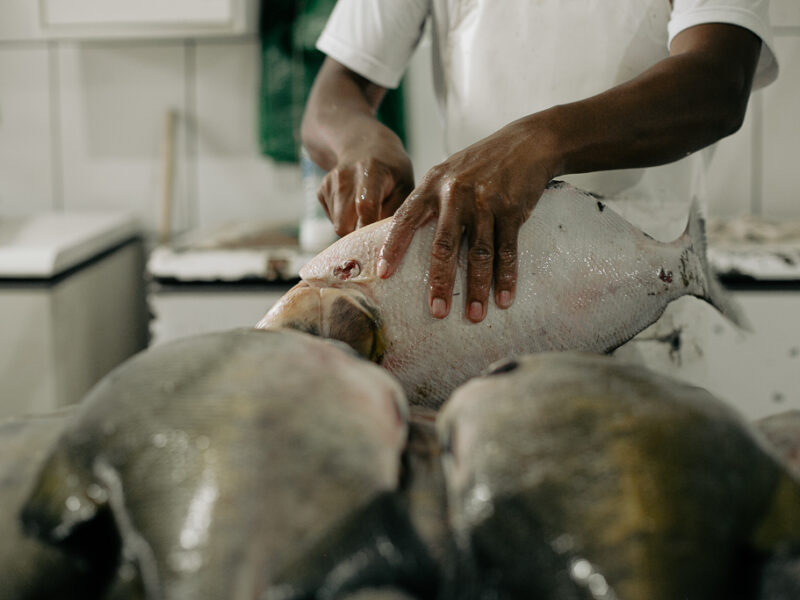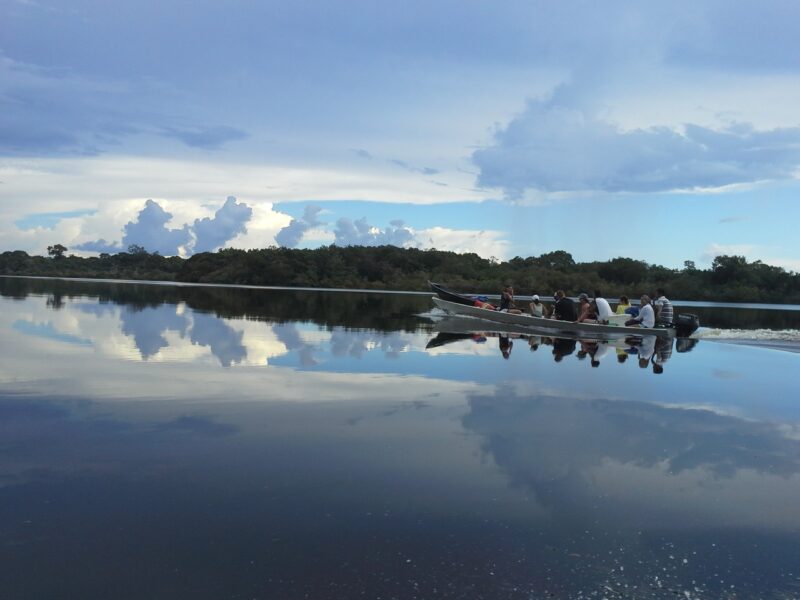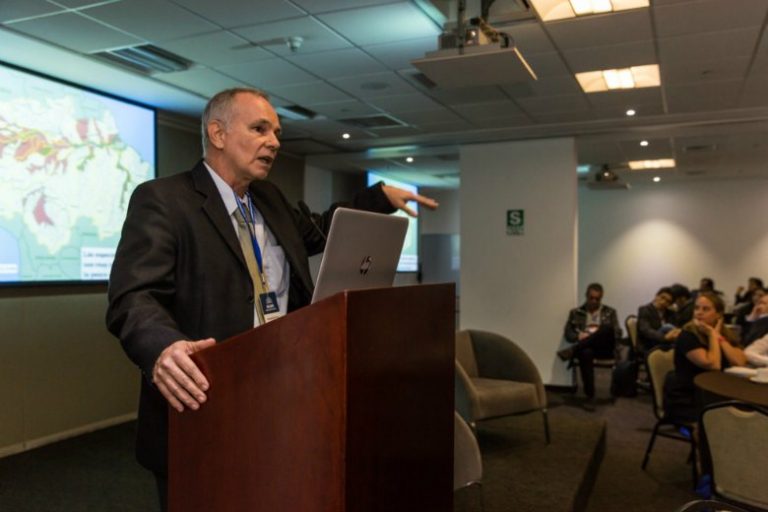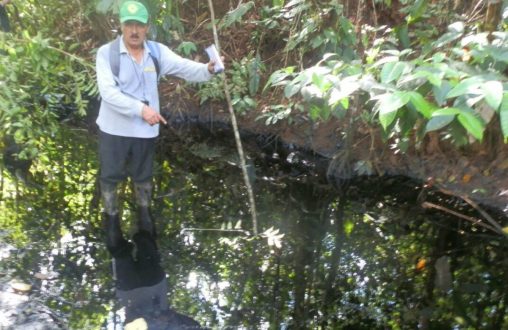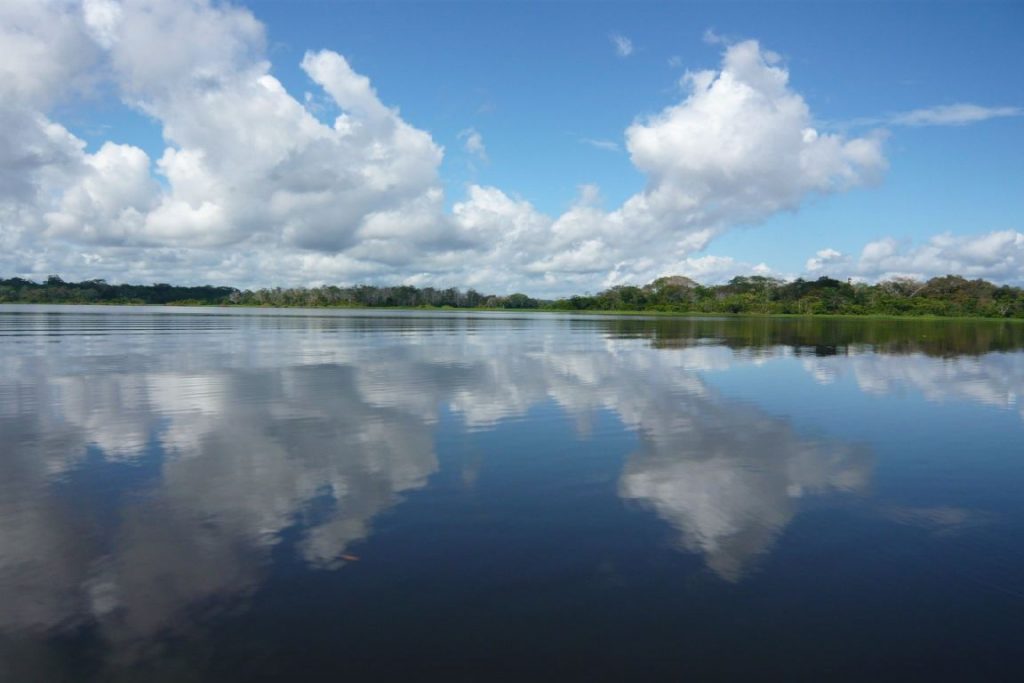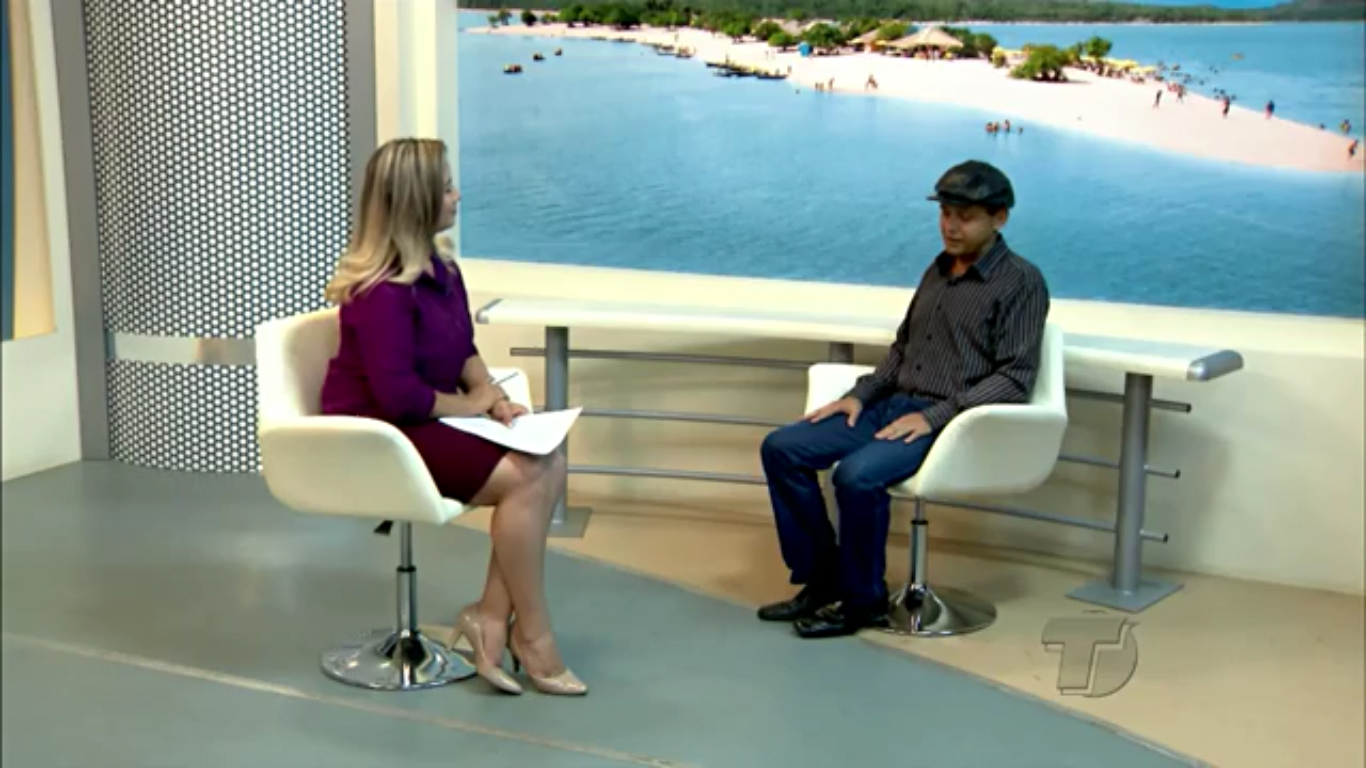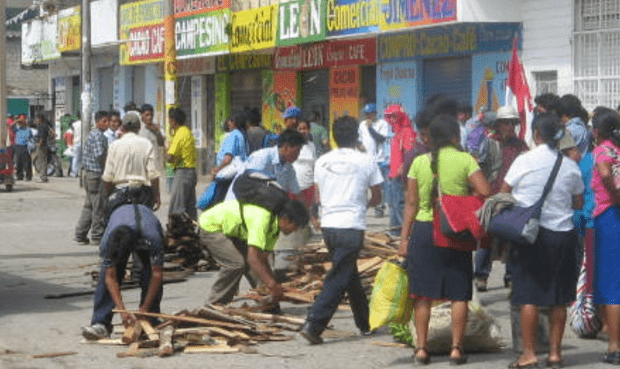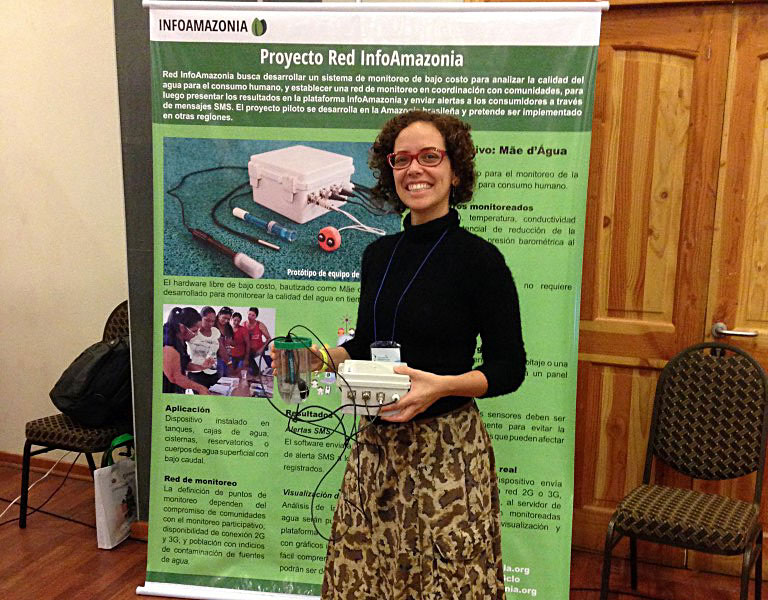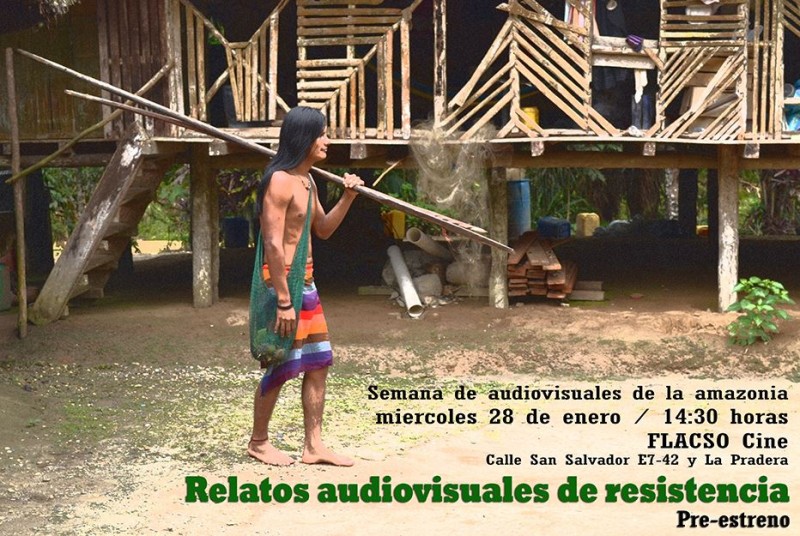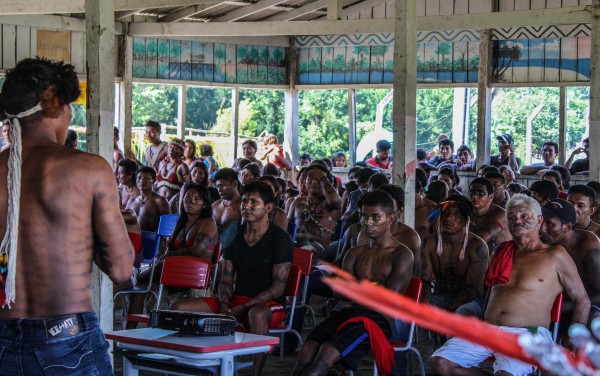Although living 186 miles away from the area along the Tapajós River where illegal mining is concentrated, Santarém’s inhabitants are at high risk of mercury poisoning.
Tag: water
Chemical products and deforestation modify Amazon River water
A study reveals that activities such as mining, deforestation and agriculture have altered the ecosystems and biodiversity of the waters of 149 major rivers throughout the world, putting entire populations at risk.
Scientists and conservationists analyze impacts and challenges in Amazon Basin
Specialists present results on fisheries, watershed management, environmental pollution, carbon storage and biodiversity in the Amazon.
Health officials in Peru: oil spill cleanup workers face ‘poisoning and burns’
Workers trying to clean up the oil spill of June 25 in Loreto lacked the equipment to clean up safely. The oil spill threatens the vulnerable community of Barranca which lacks safe drinking water and electricity.
Amazon Waters Conference: To conserve is necessary to jump borders
The importance of conservation actions cross borders is recognized in international commitment signed in Peru
Committee will be created to defend the basins of the Tapajós and Amazon rivers
The committee will be responsible for defense against social and environmental impacts in the basin and the region.
Suspension of the strike in Ucayali, Peru, after installation of a dialogue table
For 11 days, people from Ucayali protested against the rise of electronic fees and the prices of drinking water, gas and telephone.
InfoAmazonia Network participated of Latin American Meeting of Water Management
In September, the InfoAmazonia Network participated in the VI Latin American Meeting of Community Water Management in Chile to show the water monitoring project and his Mãe d´Água sensor.
Water is life for the Kichwa people of Sarayaku town, in Ecuador
In a video in Quechua language, the importance of water for the people of Sarayaku is shown. This one adds to a long and well-documented anti-extraction of oil, gas and minerals in their territory.
Why should you listen to what say the indigenous from Teles Pires
In the rivers Teles Pires and Juruena, indigenous tribes Apiaká, Kayabi, Munduruku and Rikbaktsa join forces to defend their rights against the construction of the complex of hydroelectric plants.


